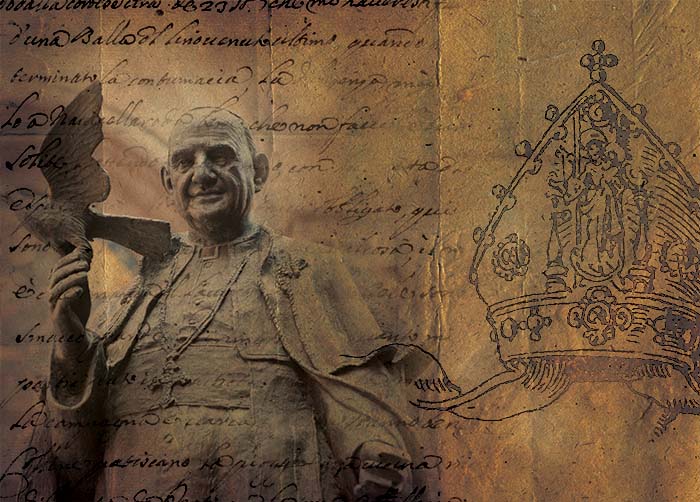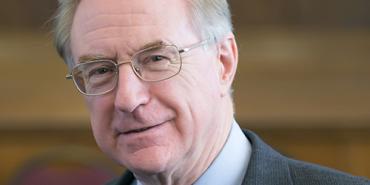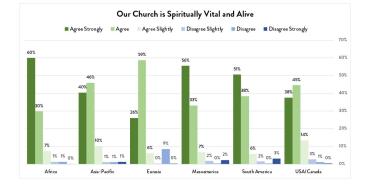Catholics and the Protestant Reformation

“Oh, really?” is a common reply I hear when I tell another Catholic that this October will mark the 500th anniversary of the Protestant Reformation. They respond as if it’s something they are supposed to know, don’t, and aren’t sure whether to feel out of the loop or just curious about why I would even mention it. For many of us Catholics, the anniversary is not even on the radar.
I’ll ask, “Do you remember the story of Martin Luther nailing 95 theses on the door of the Wittenberg cathedral?” “Sure.” But that is as far as it goes with many of us. What did those theses state? How many of them are now commonplace in the Catholic Church?
Silence…
The last Sunday of October on the Catholic liturgical calendar is usually something like the Thirtieth Sunday in Ordinary Time. It is a celebration no bigger than the Twenty-Ninth or the Thirty-First Sunday: just another autumn day.
The Reformation is not something we Catholics celebrate. As an understanding Lutheran colleague recently noted, “It’s both a birth and a divorce. It’s hard to know how to feel.”
The landscape of feelings encompasses disinterest, prejudice, and hope. No one is content with the divisions of Christianity. It is hard to find common ground even in regard to where to walk next.
I grew up amid the unfettered enthusiasm of the Second Vatican Council (1962-1965). The Catholic Church rallied under the popular Pope John XXIII and embraced the possibilities of a vision-broadened future. Twin developments stirred my young heart: the ecumenical renewal and the liturgical renewal. I grew up in a family proud of its Catholic heritage and active in the local church and school. We lived in a kind of Catholic ghetto - a higher proportion of Catholic families with kids on our block than in the rest of the city. Still, in an age of growing racial tolerance, my parents opened the hearts of their children to ecumenical tolerance as well.
I took an early interest in church music and became a parish organist even while in grade school. As the liturgical changes invigorated our parish, I found myself near the center of many lively conversations. I did not realize it at the time, but the liturgical renewal and the ecumenical renewal intertwined. The ecumenical vision opened up new possibilities for the liturgy, and the liturgy became the ultimate destination where Christians hoped one day to gather as equals.
Unexpected crops surfaced in both the ecumenical and liturgical fields over the past two decades. A new generation of post-Vatican II church leaders seemed to be putting the brakes on ecumenism and throwing the liturgical renewal into reverse. It was disorienting and dispiriting to some people of my generation who had experienced the hope and excitement of the previous years. But others welcomed what they regarded as much-needed clarifications.
Ecumenism was never as widespread as many Americans thought. In Latin America, for example, the ecumenical movement never gained much ground. The Catholic Church had long succeeded in efforts of evangelization, but the recent increased presence of other Christian groups led to competition. The success of many evangelicals, for example, probably relates to a different worship style that attracts people imbued in the more charismatic framework of indigenous religions. As liturgical practices diverged, so did Christian unity.
Even in the United States the same competition divides Hispanic Christians. Spanish-language radio stations, for example, have become a battleground for misrepresentation of the positions of Catholics and other Christians, and a venue for convincing one group of Christians that another group is misguided. Ministerial alliances that forge strong friendships in urban and rural America are hard to find among Hispanic pastors. Cooperation yields to competition.
Consequently, Catholics hold a variety of opinions pertaining to ecumenism in general and the 500th anniversary of the Reformation in particular. Formal dialogue between us and the different branches of Christianity continues. Every so often some news breaks about theological developments that offer hope. But no Catholic representatives riding this merry-go-round have yet grasped the golden ring of sharing communion.
Few other Christian churches take the hard line that we do. We restrict communion in Catholic services to those Catholics eligible for communion and we ask Catholics attending the services of other Christians not to commune. These practices remain the most dramatic symbols of separation.
Not all Catholics support the idea. Many of us feel awkward telling our non-Catholic guests at mass that they are welcome to pray but not to eat and drink. When we attend a service in a non-Catholic Christian church down the street, if the minister says something like, “All who believe in Jesus are invited to receive communion today,” it puts us in a tough spot. If we receive communion, we disobey the rules of our own church. If we do not receive, it telegraphs the untruth that we do not believe in Jesus.
Outside the walls of the churches, Catholics maintain strong friendships with our neighbors, coworkers, and colleagues, no matter their system of belief. Sometimes the best of neighbors go to different churches on Sunday. When friendships thrive on shared Christian values pertaining to a biblically-based belief in Christ, the pursuit of virtue, the avoidance of sin, and the imperative to serve, many ordinary Catholics wonder why they cannot also share communion with people they know and love, and whose faith seems so familiar.
Whereas the non-sharing of communion makes many Catholics feel awkward, it makes many of our non-Catholic friends feel pain. Even Catholics sympathetic to ecumenical advances do not fully appreciate the pain that other Christians experience.
The 500th anniversary of the Reformation calls for soul-searching among all Christians.
The sobering realization of separation, though, should not becloud the vision of the strong communion that already exists. Over the past centuries we Christians have grown in our abilities to communicate, in our experience of shared beliefs, and our common hope in Christ. Greater unity can and will come about not just because of theological dialogue between church leaders, but because of basic human friendships that find their foundation in Christ.
Father Paul Turner is pastor of Cathedral of the Immaculate Conception in Kansas City, Missouri.
Holiness Today, September/October 2017
Please note: This article was originally published in 2017. All facts, figures, and titles were accurate to the best of our knowledge at that time but may have since changed.
This article was awarded 2nd Place in the Cause of the Year category during the EPA Convention in April, 2018. Read more about the award here.





